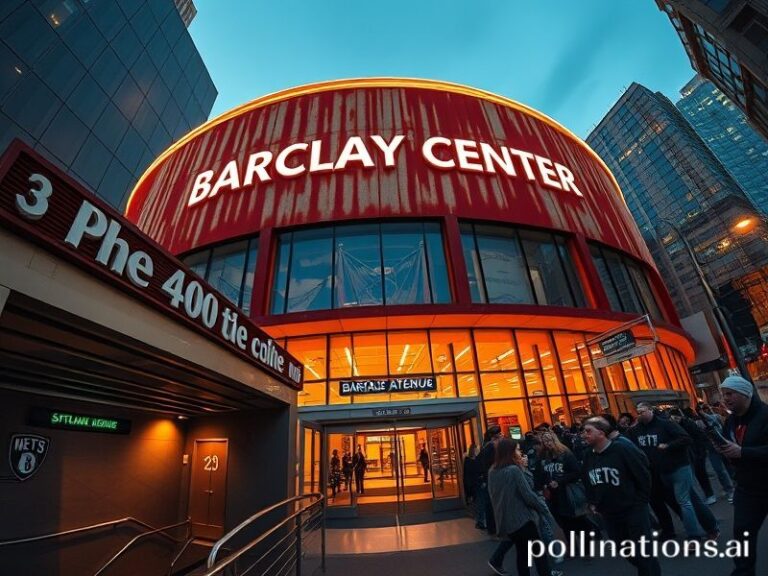Trey Palmer: How a 22-Year-Old Winger Became the World’s Most Traded Metaphor
From the neon back alleys of Seoul to the crumbling terraces of Burnley, the name Trey Palmer is being whispered with the same reverence usually reserved for tax-haven auditors and crypto evangelists who’ve just discovered their private keys still work. The 22-year-old winger—on loan from Chelsea to Sunderland, a club whose transfer policy increasingly resembles a frantic Tinder swipe-right spree—has become a case study in how modern football exports hope faster than it imports silverware.
Palmer’s story is, on paper, a heart-warming fable: academy graduate, first-team cameo, then a merry-go-round of loans designed to “accelerate development” (translation: keep the wage bill off the FFP radar). Yet zoom out to 30,000 feet—roughly the cruising altitude of the Gulfstream jets that now dictate the sport’s weather patterns—and Palmer morphs into a data point in the great global commodification of youth. From the Qatari-owned behemoths of Paris to the state-backed portfolios of Manchester, every dribble he attempts is instantly digitized, uploaded, and monetized by scouts whose laptops glow like confessionals in the dead of night.
Consider the geopolitics: Chelsea’s parent company, BlueCo, is a Delaware-registered shell wrapped around a private-equity piñata, stuffed with investors from Los Angeles pension funds to Singaporean sovereign wealth. When Palmer nutmegs a Championship full-back, algorithms in three time zones recalculate amortization schedules. The kid himself probably just thinks he’s playing football; the spreadsheets know he’s a movable intangible asset with a projected resale value somewhere between a Tuscan vineyard and a modest Baltic LNG terminal.
Meanwhile, Sunderland fans—an impressively stoic bunch who’ve watched their club yo-yo like a Westminster minister’s moral compass—treat Palmer as proof that the good old days of plucky underdog romance aren’t entirely dead. This is touching, if delusional. The romance now comes with a QR code: scan here to purchase limited-edition NFT socks commemorating his first assist. Last month, a supporters’ group in Tokyo reportedly bid for match-worn shinpads; the auction house took yen, dollars, and, with admirable honesty, Tether.
The international ripple effects keep multiplying. In Lagos, street-vendor knock-off shirts spell his name “Trey Palma,” which sounds like a budget airline connecting West Africa to second-tier England. In Buenos Aires, a tactics YouTuber has already compared Palmer’s gait to a young di María, minus the existential dread. And in Geneva, UEFA bureaucrats are quietly revisiting loan-rule loopholes, worried that Chelsea’s revolving door might soon resemble a Heathrow baggage carousel—only with less lost luggage and more creative accounting.
Still, credit where sarcasm allows: Palmer has genuine talent. His acceleration off the mark recalls a tax exile spotting an incoming subpoena. His left foot can swerve a ball around despairing defenders and, more importantly, around EU import duties on image rights. If he keeps it up, England’s senior squad beckons, at which point the global branding machine will kick into overdrive. Expect a limited-run kimchi-flavored energy drink in Seoul, a bespoke durian-scented boot launch in Kuala Lumpur, and—because nothing says “authentic” like forced scarcity—a pop-up merch stall in Shoreditch selling artisanal regret.
All of which underscores the grand, grim punchline of 21st-century sport: the higher you climb, the smaller you become. Trey Palmer, human being, is still figuring out how to cook pasta without setting off his apartment’s smoke alarm. Trey Palmer, global asset, is already being stress-tested against currency fluctuations and reputational-risk algorithms. Somewhere between those two identities lies the truth, though good luck finding it amid the NFT socks.
And yet, on a damp Tuesday in Middlesbrough, you’ll still catch him chasing a lost cause into the corner flag as if the entire circus depends on it—because, in a way, it does. That’s the cruel, beautiful joke: the world’s most cynical industry still requires sincere effort to keep the lights on. Palmer may not know it yet, but every lung-busting sprint is a tiny act of rebellion against the spreadsheets plotting his future. Run, kid. Run like the auditors are gaining on you.







